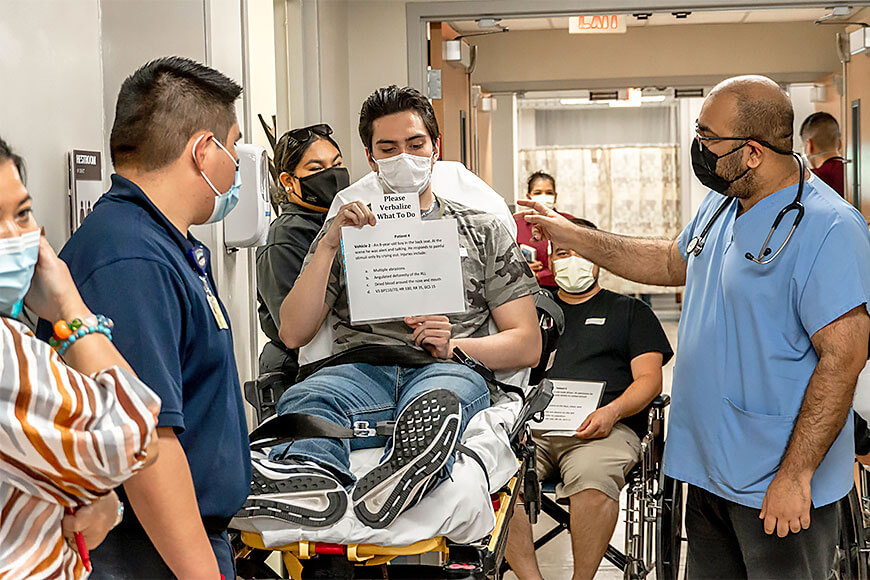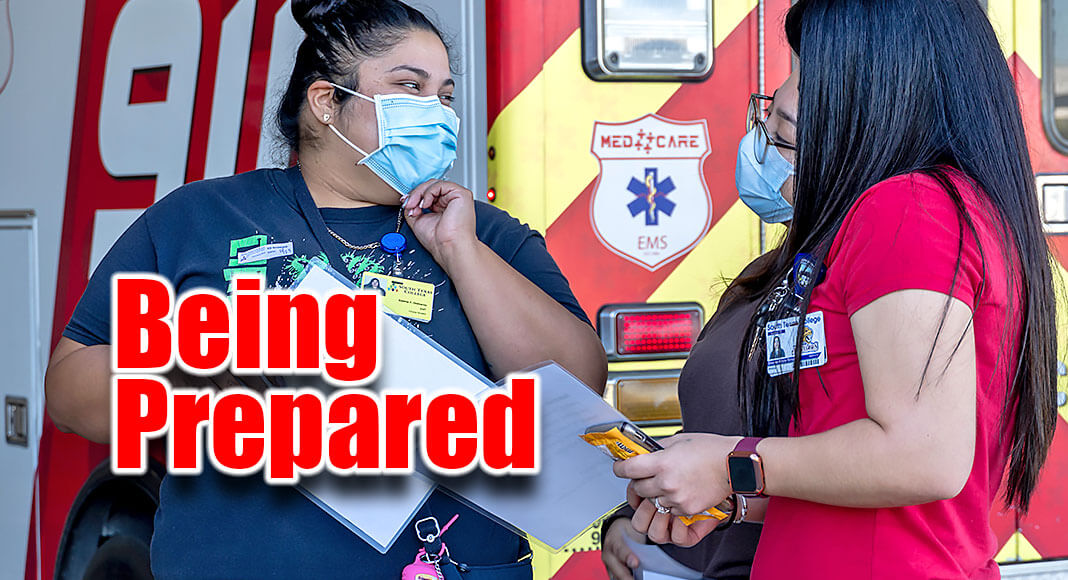
Mega Doctor News
A medical or security emergency can unfold in less than a moment’s notice, making it extremely critical for hospitals to stay alert, have a plan and be prepared for anything. Recent years, since the onset of COVID-19, have presented one challenge after the next — from PPE, staffing and nursing shortages to constantly changing CDC guidelines — and South Texas Health System has stood strong, managing all crises and proving to be the Valley’s safe, trusted and ready choice for medical care.
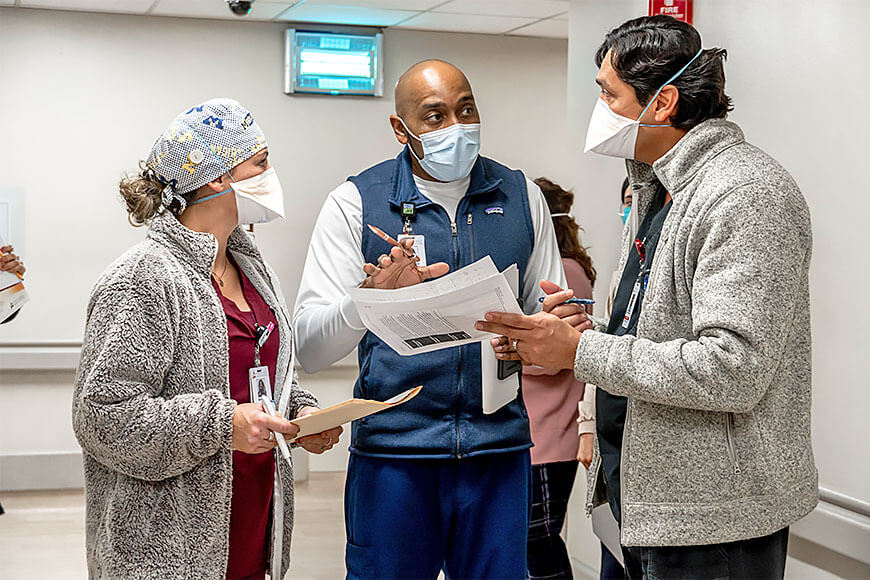
With the goal of remaining proactive to various potential extreme circumstances, on Monday, November 29, multiple facilities of the South Texas Health System participated in a two-part trauma and missing child no-notice emergency drill. The trauma drill serves as a standard requirement of The Joint Commission, as well a test of the system’s emergency response plans.
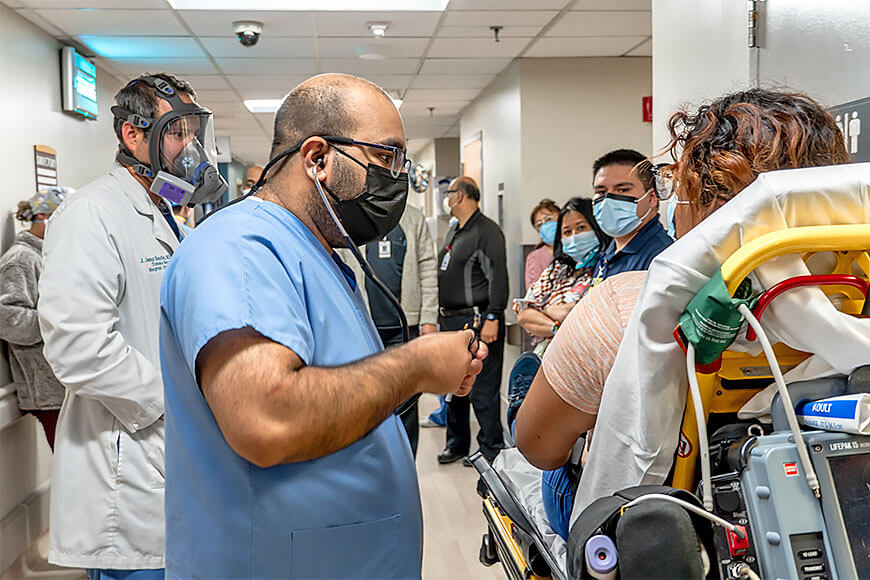
South Texas College Emergency Medical Program students participated as mock trauma patients for the scenarios, which included calling STHS Edinburg Labor and Delivery to ask about the hospital’s security, thus alerting suspicion, and being rushed into the STHS McAllen emergency room with signs around their neck detailing their states of injury. One student actor required transportation to STHS Heart for cardiac treatment, further testing the coordination among STHS’ facilities.
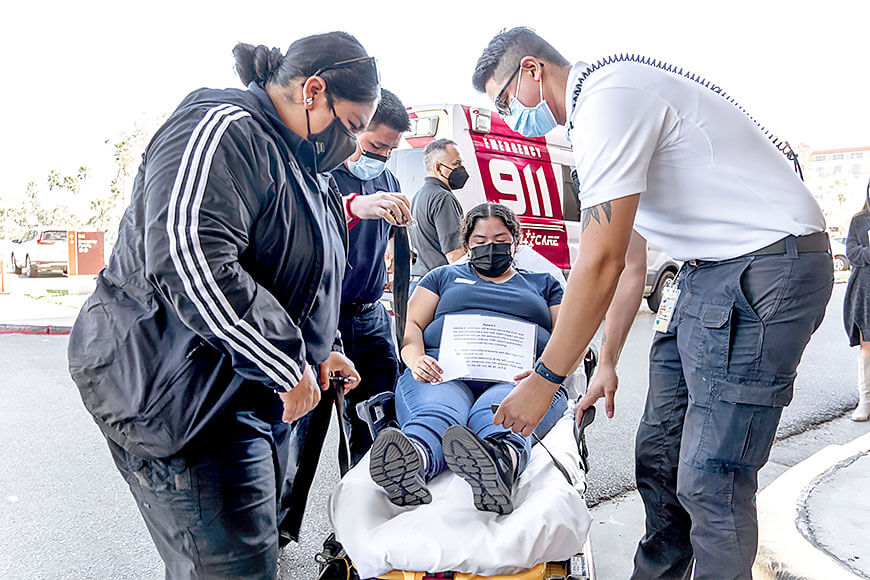
Various department directors were on standby to assess how nurses, doctors and hospital staff handled the exercises. Upon conclusion, evaluators met to debrief, discussing strengths and areas in need of improvement.
“Exercises like this are imperative when gauging our readiness as a hospital system and to identify areas we can improve on, that way, people who come to STHS not only know they’re coming to a safe environment, but that the staff here is very knowledgeable,” STHS Emergency Management Coordinator James Archer said. “If we see something we need to address, we can correct it for the next exercise and further improve.”
In the coming months, STHS will hold additional exercise drills to help ensure preparedness for natural disasters, an active shooter, critical injuries and other potential emergency situations.
